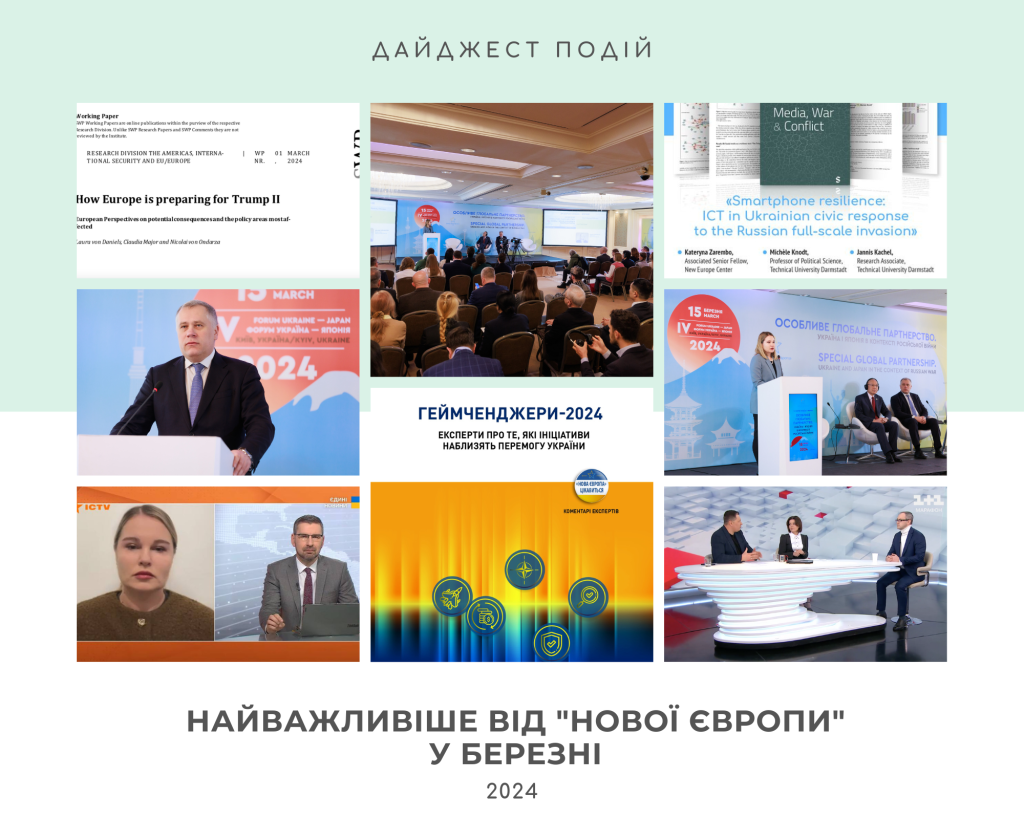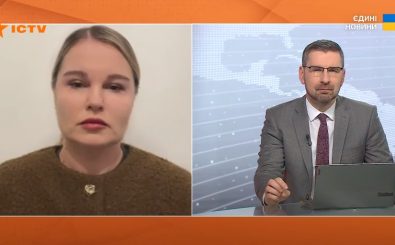The op-ed is published at The New York Times.
Alyona Getmanchuk is the founder and director of the New Europe Center, a think tank focused on strengthening connections between Ukraine and Europe.
Ukrainians have long been accustomed to the use and abuse of their government during our 28 years of independence.
Ukraine has spent years grappling with the influence of Russia, whose president insists that Ukraine and Russia are one nation. Both of the recent popular uprisings here, the Orange revolution in 2004 and the Maidan revolution in 2014, were at least partly revolts against excessive Russian influence; before 2014, many Ukrainian leaders’ policies were shaped by Vladimir Putin’s demands.
Russia’s influence efforts, in turn, were helped along by domestic corruption in Ukraine: by the so-called oligarchs who still play an oversize role in our politics and economy, and by political leaders seeking to profit from their offices.
But for the past five years, Kiev has enjoyed a relatively respectful relationship with Western countries, including the United States, which has helped us make progress on the domestic front. The United States has helped Ukraine both deter Russian aggression and undertake important reforms. Americans have invested billions in making improvements in Ukraine, including in the legal system. It is thanks in no small part to the United States that Ukraine now has a court focused on high-level political corruption that began operations a couple of weeks ago.
It is not surprising that, according to opinion polls, Ukrainians consider the United States, along with Poland, our primary ally in the world.
And so it is bitter to learn that under Donald Trump, it appears that the leadership of the United States has now joined the list of those who would use Ukraine to pursue their own narrow ends, and do so in ways that hinder our own efforts to improve our country. It is especially painful that this is happening at a moment when the new Ukrainian leadership desperately needs a functional partnership with Washington.
With the victory of Volodymyr Zelensky in this year’s presidential and parliamentary elections, Ukrainians got one more chance at fighting corruption by making further reforms to the judiciary and the prosecutor general’s office. Mr. Zelensky, a former comedian who won more than 70 percent of the vote, has promised not to run for a second term. Some of his first steps have been encouraging: He appointed a new professional and trusted team at the prosecutor general’s office — an especially important change, given how often prosecutions have been wielded as political weapons in Ukraine — and he has empowered anti-corruption bodies.
But the prospects for rule of law and a corruption-free administration in Ukraine remain fragile; many are concerned, for instance, about the influence of oligarchs on Mr. Zelensky’s agenda.
And Ukraine remains in a precarious position. Crimea is still under Russian control, and the war in the east continues; the fight against corruption at home is also not yet won. In all of these matters, Ukraine is reliant on bipartisan American support, which is why our leadership is desperate to avoid becoming part of the American presidential campaign.
Ukraine is now facing the prospect of becoming a double victim: on the one hand, a victim of Mr. Putin’s aggression; on the other, a victim of Mr. Trump’s desire to be re-elected at any price.
It is a grievous offense for an American president to try to perpetuate political corruption and corruption of the justice system here.
The real “favor” that Mr. Zelensky can give Washington is to demonstrate by his deeds that an independent, non-corrupt judiciary has begun to operate in Ukraine in earnest, and that the United States did not invest in the country for so many years in vain. If Mr. Trump wants to give a boost to his campaign with the help of Ukraine, he can do so by helping Mr. Zelensky to end war in the east on conditions acceptable to the Ukrainian people.
Ukraine would like to remain what it has been now, for the past five years: a reliable partner for the United States, not a source of “kompromat” for domestic political infighting.







